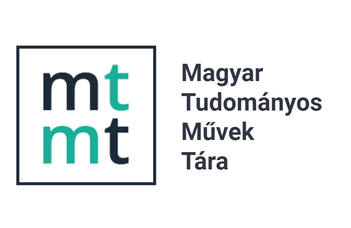The concept and main features of the primary sources of law of the European Union
DOI:
https://doi.org/10.46941/2023.e2.10Schlagworte:
European Union law, sources of law, form of law, primary lawAbstract
The European Union’s (EU) sources of law, which fall under the generic definition of a source of law, each have unique characteristics. This article examines the dual nature of the EU law and addresses the issues with its concepts and features. The sources of EU law are classified as primary and secondary. The primary sources include constituent agreements and general principles of law, while the secondary sources comprise regulations, directives, and framework decisions.
Literaturhinweise
Abashidze, A. H. (2001) Mezhdunarodnye dogovornye normy v sisteme evropejskogo prava. Prepodavanie prava Evropejskogo soyuza v rossijskih vuzah: materialy mezhdunarodnogo seminara. Moscow: Urait.
Badin, M. I. (2001) Sushchnost' prava (sovremennoe normativnoe pravoponimanie na grani vekov). Saratov: Pravo i gosudarstvo.
Berzhel', Zh.-L. (2003) Obshchaya teoriya prava. Moscow: Publishing house Nota Bene.
Borhardt, K.D. (1994) Azbuka prava Evropejskogo soyuza. Moscow: Pravo.
Sieberson, S. C. (2004) ‘How the New European Union Constitution will allocate Power between the EU and its Member States: A Textual Analysis’, Vanderbilt Journal of Transnational Law, 37(4), pp. 993-1042.
Craig, P., Harlow, C. (1998) Lawmaking in the European Union. London: Kluwer Law International.
Crawford, J. (2012) Brownlie's Principles of Public International Law. Oxford: Oxford University Press.
Cruz, P. (1993) A Modern Approach to Comparative Law. London: Kluwer Law International.
Dinnage, J., Murhy, J. (1996) The Constitutional Law of the European Union. New York: Carolina Academic Press.
Edward, D., Lane, R. (1995) European Community Law. An introduction. 2nd ed. Edinburgh: Butterworths Law.
Entin, M. (2004) Evropejskoe pravo, Pravo Evropejskogo Soyuza i pravovoe obespechenie zashchity prav cheloveka. Moscow: Norma.
Freestone, D., Davidson, I. (1988) The Institutional Framework of the European Communities. New York: Routledge.
Gornig, G., Vitvickaya, O. (1998) Pravo Evropejskogo soyuza. St. Petersburg: Piter.
Hanlon, J. (2003) European Community Law. 2nd ed, London: Sweet & Maxwell.
Hartley, T. C. (1999) Constitutional Problems of the European Union. Oxford: Hart Enterprises.
Hearn, K. (1883) The Theory of Legal Duties and Rights. London: Trubner and Co.
Hoaben, Y., Pollan, T. (2005) European interests. A 2020 Vision of the Union’s Foreign and Security Policy. Baden-Baden: Nomos.
Ioffe, O.S., Shargorodskij, M. D. (1961) Voprosy teorii prava. Moscow: Gosyurizdat.
Lejst, O.E. (2002) Sushchnost' prava, Problemy teorii i filosofii prava. Moscow: Zercalo.
Lenaerts K., Desomer M. (2005) ‘Towards a Hierarchy of Legal Acts in the European Union Simmplification of Legal instruments and Procedures’, European Law Journal, 11(6), pp. 744-765; https://doi.org/10.1111/j.1468-0386.2005.00285.x.
Luchin V.O., Mazurov A.V. (2000) Ukazy Prezidenta RF. Osnovnye social'nye i pravovye harakteristiki. Moscow: Unity-Dana.
Marchenko, M.N. (2019) Istochniki prava. Moscow: Norma.
Mathijsen, P. (1990) A Guide to European Community Law. London: Sweet & Maxwell.
McCormick, J. (1999) Understanding the European Union. A Concise introduction. London: Springer; https://doi.org/10.1007/978-1-349-27410-9.
Pescatore, P. (1983) ‘The Doctrine of “Direct Effect”: An Infant Disease of Community Law’, European Law Review, 1983/8, pp. 151-153.
Petersmann E. (1995) ‘Proposals for a New Constitution for the European Union Building. Blogs for a Constitutional Theory and Constitutional Law of the EU’, Common Market Law Review, 32(5), pp. 1123 – 1175; https://doi.org/10.54648/cola1995055.
Polland, D., Ross, M. (1994) European Community Law. London: Butterworths.
Shaw, J. (2000) Law of the European Union. New York: Springer.
Shebanov, A.F. (1968) Forma sovetskogo prava. Moscow: Yuridicheskaya literatura.
Shershenevich, G.F. (1911) Obshchaya teoriya prava. Moscow: Izd. Br. Bashmakovyh.
Shvecov, A.L. (2007) Sistema istochnikov v razvitii prava Evropejskogo soyuza (Teoretiko-pravovoe issledovanie): Abstract of the dissertation of the candidate of legal sciences. Tambov: Yunona.
Sieberson, S. C. (2004) ‘How the New European Union Constitution will allocate Power between the EU and its Member States: A Textual Analysis’, Vanderbilt Journal of Transnational Law, 37(4), pp. 993-1042.
Snider, F. (1993) ‘The Effectiveness of European Community Law: Institutions, Processes, Tools and Techniques’, Modern Law Review, 56(1), pp.19-54; https://doi.org/10.1111/j.1468-2230.1993.tb02852.x.
Snyder, F. (2001) Europeanization of Law: The Legal Effects of European integration. Oxford: Hart Publishing.
Topornin, B. N. (1998) Evropejskoe pravo. Moscow: Yurist.
Trubeckoj, E.N. (1998) Enciklopediya prava. Saint-Petersburg: Yuridicheskij institute.





